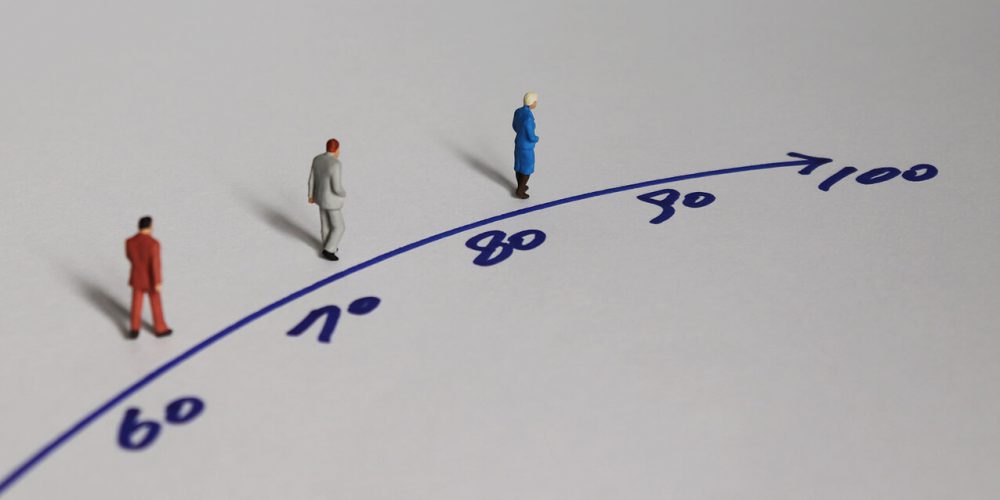Perceive failure as a step to success

There are lots of ways to bounce back from failure, and they all help you with building resilience.
Everyone defines failure differently and most people will say that they learn more from their failures than their successes. Life’s most important lessons are hidden in failure, but it takes courage to examine the situation, uncover the lessons, and learn how to deal with failure productively.
When we fail at something our self-confidence and enthusiasm may be crushed by the experience. Each time we examine the situation, we may be able to see different aspects of the failure that deliver information to inform and build resilience. The following five steps give you a simple process to follow for building resiliency each time you feel that you failed.
Failures come in all shapes and sizes. Personal failures include divorce, relationship problems, loss of friendship, or simple mistakes made in haste or anger. Professional failures include the loss of a job such as being laid off or fired. Another failure may be a lost promotion, loss of job satisfaction, or loss of expectations for your career. The greatest teachers are big failures.
Resilience is the capacity to experience loss, failure, and disappointment and incorporate the experience as a lesson worthy of your attention. When you tap into your well of resilience you are able to see the failure as a part of your journey, not the end of the game. Each time you incorporate the five lessons below you will build a well of resilience that you can tap into whenever you feel that you failed.
“Persistence and resilience only come from having been given the chance to work through difficult problems.” — Chris Peterson
Pat Magerkurth, life and business coach with extensive experience developing resilience and speaking out, suggests here are 6 ways to bounce back and be better than ever, if you’re feeling down because of a recent failure.
Failure is the greatest teacher.
Failure is the perception that you didn’t do something right and that the loss is your fault. How you perceive an experience determines whether you see it as a failure or as a difficult situation that needs review and attention. An experience that you define as a failure may simply be a set of circumstances aligned against you.
Or it may be that you didn’t assess the situation realistically and failure was inevitable. The only way to determine the part you played in the experience is to follow these steps and assess what you could have done differently. Therein lies the lesson. The only thing you can control is yourself.
Take time to process your emotions and disappointment.
Failure brings with it a complex set of emotions and self blame. In addition, you may be angry at the situation or person that you perceive let you down or caused the failure. It is okay to feel mad, sad, disappointed, frustrated, confused, and let down.
Take the time through journaling or reflection to process the emotions. You can cry, scream into a pillow, or stomp your feet. But be sure to use this time to process your emotions, not to strike out at those you perceive have let you down or caused you to fail
The first step is recognizing the emotions and then making a clear and thoughtful decision about any actions that you take regarding the situation. For example, if you were fired, it is best not to burn any bridges by striking out or saying things that will make a difficult situation worse. Some ways to process your emotions are to write letters you never send or journal about the emotions and place them in the context of the situation.
Take a deep dive to understand the facts.
The facts of the experience are the events without any emotional content. After you have processed your emotions (this may take several days or even months), breathe deeply and view the facts of the experience. Write down what happened without any emotional bias.
Recognize your actions within the situation without blame or anger to help inform future situations. The old saying that “wherever you go, there you are,” is true. People learn behaviors, beliefs, and strategies for handling failure from childhood experiences. Developing resilience requires you to understand how you react to failures.
It also requires you to take a realistic assessment of your part in the failure. What could you have done differently to generate a different outcome? If you determine that there was nothing you could have done differently, then you may simply be a victim of circumstance.
However, most failures include a turning point where a different choice on your part, may have created a different outcome. The only way to tell is to take an objective look at your experience and then learn.
Incorporate what you learn into your plans.
Each time you process your experiences, you will learn that you could have generated a different outcome with a different choice. Each day is made up of a series of choices. Those choices span from what you eat for breakfast to how you behave in relationships.
Little choices can have big consequences. Did you choose to react angrily or to ignore warning signs that pointed to failure? Self-awareness and the capacity to behave based on that awareness is the cornerstone of resilience.
When you understand the facts of a failure and incorporate the lessons into your sense of self, you can make a different choice the next time. However, some people go from failure to failure without any self-awareness and never understand why their outcomes are always the same. Resiliency is the capacity to gain knowledge and self-awareness and then incorporate those lessons into our life.
Get back up.
When you fail, it feels like you have fallen down in life. Getting back up means giving yourself permission to restart your life using the lessons learned from the experience. It may mean starting to look for another job, starting to find another relationship, or simply getting back out into the world with friends and family.
Some people need to remove themselves from the world to process lessons one through four. Eventually, you need to shake off your disappointment and continue to experience life. Severe trauma can have a deep impact.
If your failure is from a traumatic experience, then you may need to see a counselor to process numbers one through four. Only you can determine what you need. The decision to see a coach or counselor doesn’t signal another failure. It means you have the courage to face the situation and work through it to a successful outcome.
Never give up.
Persistence is the best predictor for success. Grit is one of the biggest predictors for success. Tanner Christensen identified four components for developing grit:
– Learn as you go and get feedback from step three. Feedback from peers and supervisors will help you develop grit or resilience.
– Find something that you can be passionate about and use that as a motivating force. Find something that you can dig into to gain a greater understanding.
– Discover a way to develop hope out of the examination process. Failure is not a permanent state of affairs. If you feel you are failing all the time and can’t find hope, get help from a coach or counselor.
– Success takes time. Give yourself the time to process the experience and develop a plan for your success.
Failure is inevitable. Everyone experiences loss, disappointment, and failure. Resiliency allows you to bounce back from failure and build for a successful future. Your choices and actions determine your success. If you cannot figure out why you keep failing, find a professional who can give you an objective perspective. Remember that failure is not permanent, but is an experience that you can weave into the tapestry of your life.
“I have not failed. I’ve just found 10,000 ways that won’t work.” — Thomas Edison
































